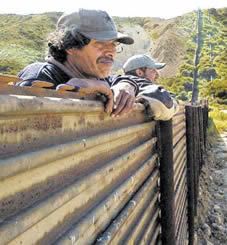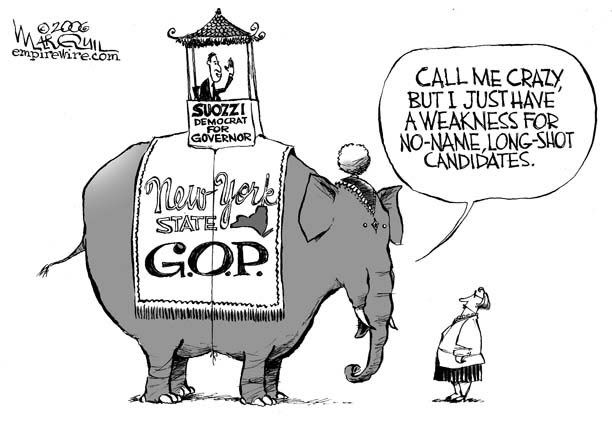
This week, Congress authorized another $70 billion in emergency funding to pay for Bush's wars in Iraq and Afghanistan through early next year, the same amount as Bush's tax cut for the rich this past May, 2006. Instead of paying for a war that directly benefits them and not the average American, the rich got to improve their lifestyles while eliminating the possibility of their becoming victims of terrorist acts. Nice scam, as laid out by CNNMoney.
This brings the total amount spent for Bush's wars of choice to $507 billion.
As lawmakers rushed to approve numerous measures before leaving to campaign:
. . . the Senate on Friday night passed and sent to President Bush a bill authorizing 700 new miles of fencing on the U.S. border with Mexico. No one knows how much it will cost, but a separate bill passed later Friday would make a $1.2 billion down payment on the fence. A 14-mile segment of fence under construction in San Diego is costing $126.5 million.
The fence bill was passed by the House two weeks ago. The Senate vote Friday night was 80-19.
In addition to money for starting work on the fence, a homeland security bill Congress completed on Friday includes $380 million to hire 1,500 more Border Patrol agents and money to build detention facilities to hold 6,700 more illegal immigrants until they can be deported.
"We have made giant steps in terms of our ability to control illegal immigration," House Majority Leader John Boehner (R-Ohio) told reporters.
The fence bill became House Republicans' immigration focus in September after they abandoned Bush's call to bring millions of illegal immigrants into the American mainstream.
Democrats and immigration advocates say Republicans can hardly claim victory.
House Republicans failed to win measures for deporting immigrant gang members and empowering local police to enforce immigration laws. Their biggest obstacle turned out to be another Republican, Senate Judiciary Committee Chairman Arlen Specter of Pennsylvania.
House Minority Leader Nancy Pelosi (D-Calif.) said the border security achievements trumpeted by Republicans don't measure up to the more comprehensive reforms her party backed. What the GOP calls achievements fall "very far short of what Democrats have proposed over and over and over again," she said.
The compromise defense bill passed earlier Friday provides $378 billion for core Pentagon programs, about a 5 percent increase, though slightly less than Bush asked for. The $70 billion for Iraq and Afghanistan is a down payment on war costs the White House has estimated will hit $110 billion for the budget year beginning Oct. 1.
The Iraq war continues to be unpopular with voters, according to opinion polls, but even Democratic opponents of the war voted for the Pentagon measure, which provides funding for body armor and other support for U.S. troops overseas.
"America is in deep trouble in Iraq," said Sen. Edward Kennedy (D-Mass.). "The continuing violence and death is ominous. ... Militias are growing in strength and continue to operate outside the law. Death squads are rampant."
The growing price tag of the Iraq conflict is partly driven by the need to repair and replace military equipment worn out in harsh, dusty conditions in Iraq and Afghanistan or destroyed in battle. Almost $23 billion was approved for Army, Marine Corps and National Guard equipment such as helicopters, armored Humvees, Bradley armored fighting vehicles, radios and night-vision equipment.
Lawmakers allotted $1.9 billion for new jammers to counter improvised explosive devices in Iraq and Afghanistan, and $1 billion is provided for body armor and other personal protective gear.
There are about 142,000 U.S. troops in Iraq and more than 20,000 in Afghanistan, and military officials say those levels will be necessary through the spring.
At this rate of spending, by the time Bush-Cheney leave office we will have spent/borrowed at least $1 TRILLION on Bush's wars - that does not include Bush's escalation of the war on terror into Iran and Syria.

Technorati Tags: Technorati Tag, Technorati Tags, tags, categories, Bush, economy, border, tax cut, security, Afghanistan, $70 billion, conspicuous consumption, Syria, Iran, war on terror, war in Iraq, The Constant American, Constant American





















